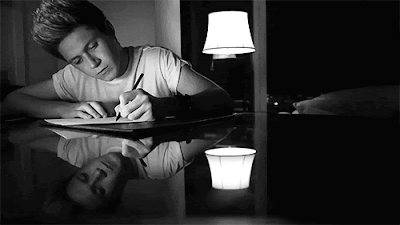10 Important Tips for Last
Night Study for Exam
It's the night before your big
exam. The hard work is done, your revision has met its end and now is the
perfect time to calm down your nerves and make sure that you're ready to enter
into that exam hall well rested and confident in your ability to write an
amazing paper. And we've asked a top academic for their top 10 ultimate tips
and tricks to help ensure that you're ready to ace your exam!...
1. Nothing New
One of the first
rules for running a marathon is not to do it in new shoes. The logic of
‘nothing new’ in sporting events extends to food, clothes, routines, and so on.
If you haven’t tried something in the past, now is not the time
to experiment with a new memorisation technique, legal or illegal
pharmaceuticals, or work routines.
Go with what has worked best in the past, no
matter how much someone might try to convince you of a newer, better, or faster
way. And this includes how much of the following advice you might want to take.
The night before an exam is not the time to hunt up that
book from the library your instructor insisted you look over. Everything you
need to prepare for the exam should be available for your use the night before
so you can make the best use of your time.
Then start
fresh. Get a regular night of sleep 6.5-8 hours, but go to bed early. Then
start studying again first thing when you wake up until it is time to take the
exam. This will give you two opportunities to come at the material revitalised.
If you skimp on sleep, you will never really feel fresh, and will most likely
just feel irritable, distracted, and burned out. Nevertheless, as always, see
#1.
4. Eat Right
You want to get the most out of your food and drink, but not
abuse it to the point of diminishing returns. Nevertheless, as always, see #1.
10. Be Ready To Go
Have the clothes you will wear ready (and best go with layers in
the event that the room is too warm or too cold). Have what you will eat more
or less ready to be eaten. Probably even best to shower the night before. This
way you will not have to put too much effort into getting ready in the morning.
It's the night before your big exam. The hard work is done, your revision has met its end and now is the perfect time to calm down your nerves and make sure that you're ready to enter into that exam hall well rested and confident in your ability to write an amazing paper. And we've asked a top academic for their top 10 ultimate tips and tricks to help ensure that you're ready to ace your exam!...
Go with what has worked best in the past, no matter how much someone might try to convince you of a newer, better, or faster way. And this includes how much of the following advice you might want to take.
The night before an exam is not the time to hunt up that book from the library your instructor insisted you look over. Everything you need to prepare for the exam should be available for your use the night before so you can make the best use of your time.
Then start fresh. Get a regular night of sleep 6.5-8 hours, but go to bed early. Then start studying again first thing when you wake up until it is time to take the exam. This will give you two opportunities to come at the material revitalised. If you skimp on sleep, you will never really feel fresh, and will most likely just feel irritable, distracted, and burned out. Nevertheless, as always, see #1.
You want to get the most out of your food and drink, but not abuse it to the point of diminishing returns. Nevertheless, as always, see #1.
Have the clothes you will wear ready (and best go with layers in the event that the room is too warm or too cold). Have what you will eat more or less ready to be eaten. Probably even best to shower the night before. This way you will not have to put too much effort into getting ready in the morning.



0 Comments